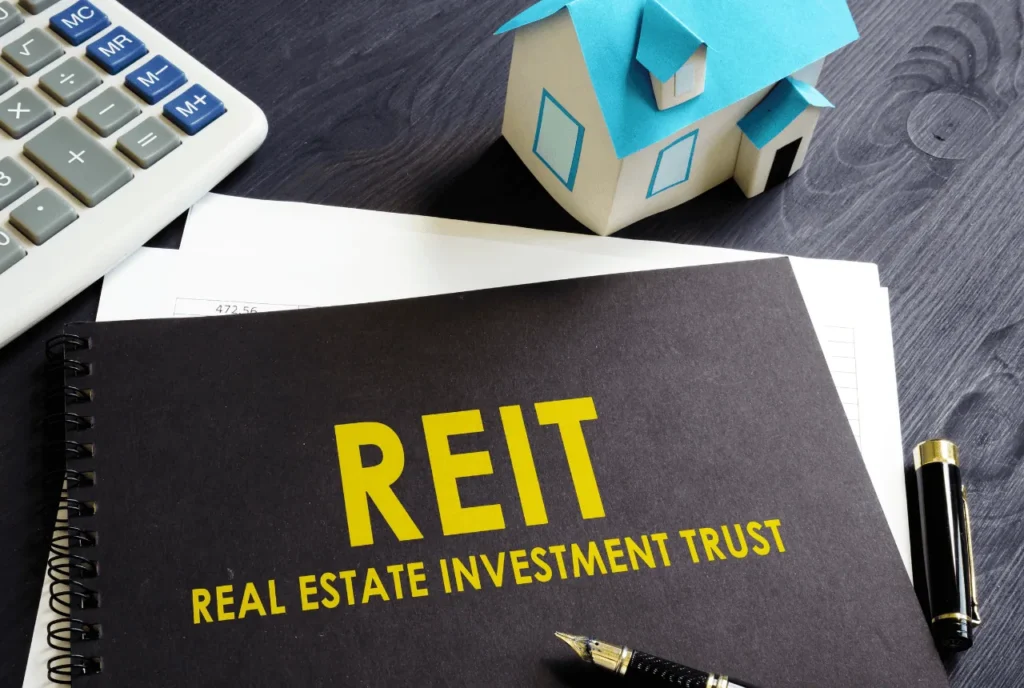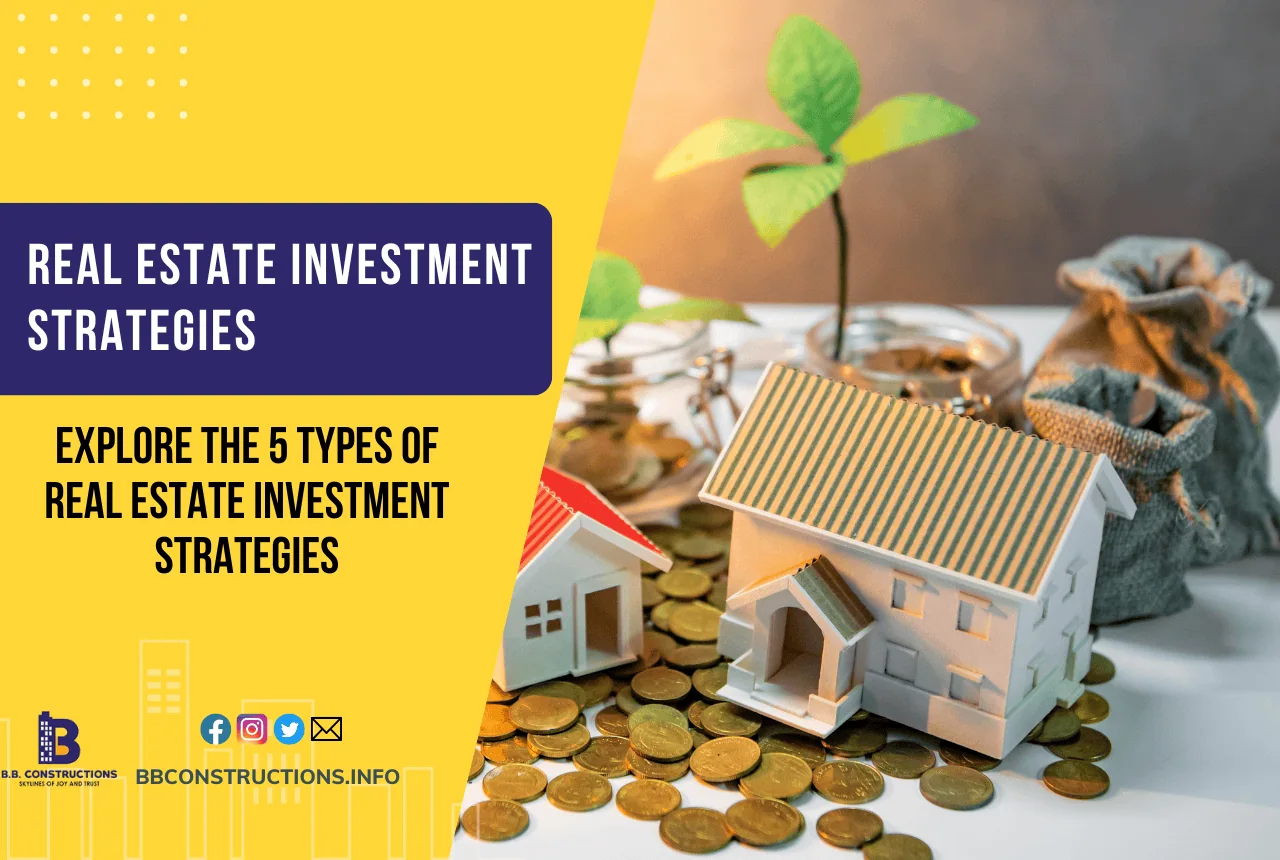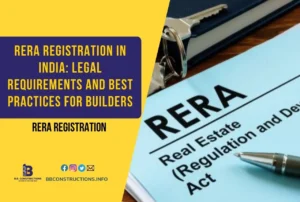![]()
You would think that building wealth is possible through real estate. The asset class can be quite robust, offering a myriad of pathways for the achievement of financial goals, however, requiring thought and strategic thinking if one were to push through all the complexities of the market
Below you will find some in-depth insights about five different strategies for investment in real estate, which are intended to meet different goals and risk profiles. Whether your need is for steady income, quick profits, or long-term growth, these strategies will give you the tools you need to make informed decisions and really unlock your investment potential. Next step: dive into the exciting world of real estate!
Explore the five different types of real estate investment strategies to achieve amazing success given below:
Understanding the Importance of Real Estate Investment Strategies

Real estate investment strategies are pretty important tools for any investor, guiding them to make smart decisions in buying and managing properties. The selection of the right strategy will determine lots of money and risk management.
Here’s why having a strategy matters:
- Risk Management: There are varying levels of risk depending on the strategy, so you can pick one that suits your comfort level.
- Diversification: With using multiple strategies, risks are typically diversified, especially when markets fluctuate.
- Market Adaptation: The best way to stay ahead of the curve, whether that trend is one of renting over homeownership, or perhaps the growing influence technology plays in real estate, is the knowledge you can gain. As of October 2024, interest in rising interest rates and the increase in environmental-friendly home requests are already influencing the market.
Generally, a robust strategy is not only an effective risk manager but helps one stay ahead of the curve in an ever-changing real estate landscape.
5 Different Types of Real Estate Investment Strategies
1. Buy and Hold Strategy

Buy and hold is one of the different types of real estate investment strategies, a different kind of brilliant way to accumulate wealth in the long run.
Imagine owning properties that not only place money in your pocket each month but also appreciate in value with time. That is what the bottom line of the buy-and-hold strategy is all about – designed as a long-term investment plan to offer steady rental income plus appreciation on property value.
Who is it for? This strategy goes well with people who need a steady inflow of cash but do not mind waiting for the value of the asset to be appreciated.
Benefits:
- Genuine, Passive Income Through Rental
- Appreciation in the Long Term for Your Property
Challenges:
- https://bbconstructions.info/how-to-determine-the-market-value-of-your-property/The market condition may also affect your property’s value
- Tenant management, as well as maintaining the property, takes too much time
Bottom line: Be prepared for some of the management aspects, such as fixing things or dealing with tenant issues.
Real-life example: Many savvy investors purchase single-family homes in up-and-coming neighborhoods. They enjoy rental income while their property appreciates the rising value of the neighborhood.
This is a long-term approach, requiring patience and smart planning so your investment grows both in value and income.
2. House Flipping Strategy

Interested in investing in something that goes pretty fast? House flipping might be the answer. Basically, house flipping is the concept of buying houses at low prices, renovating them, and then selling them in a shorter period of time at higher costs.
Who Is It For?
It suits someone who is well aware of the property market and has an eye for renovation.
Why Does It Work?
Giant Returns in smaller time cycles: Chances of getting quicker profits are extremely high.
The goal is yours, your profits: You have a say in the renovations so the added value is on the points you choose.
Be careful to:
- Market changes: Before you know property values have changed overnight. Timing has everything in this game.
- Hidden costs: New renovations can quickly sink profits.
- Pro tip: Good house flippers find underpriced gems within high-demand areas, renovate them quickly, and sell well within a demand timeline. Sharpen your pencil and watch over your renovation budget and the timing of your resale.
3. Real Estate Investment Trusts (REITs)

Real estate is a fabulous investment, but it’s not always feasible to invest directly in properties. Thus, Real Estate Investment Trusts (REITs) have been designed as an excellent alternative to owning real estate without directly buying property. You can invest in a publicly traded company that owns income-generating properties such as shopping malls, office buildings, and even an apartment complex.
Why REITs?
They are ideal for investors who desire diversified portfolio investment with a small outlay of capital. In contrast to investing in real estate properties, REITs will enable you to invest in real estate markets without demanding a huge amount of money from you.
Benefits:
One most important advantages that can be quoted is liquidity. Unlike the selling of property, which may take as long as months, one can buy and sell shares in REIT, making it quite flexible. Additionally, since professional management runs the show, you do not have to embark on the tedium of day-to-day affairs of owning property. You just get to invest in real estate, letting the heavy lifting fall to the experts.
Disadvantages
Nevertheless, REITs have downsides. You do not have direct control over where it is investing and are subject to price movements with the common equity market. Next, choosing the right type of REIT is important. Whether it is residential, commercial, or niche markets like healthcare, your investment should align to your goal.
Real-life Example:
Healthcare facilities are an excellent illustration of smart REIT investment. As the demand for medical services continues to rise year after year, investment in healthcare properties or management can provide stable long-term returns on dividend income. As such facilities are almost a necessity, the returns could be well expected to be far safer than the other real estate sectors.
The right REIT will bring you the fruits of real estate investment by requiring fewer capital hassles towards diversifying your portfolio.
4. Rental Property Investment

Rental Property Investment: A Strategy for Passive Income
Investment in rental properties, whether residential or commercial, provides a sure way of earning steady income. It entails buying the property and then letting it out to tenants, earning cash flow in terms of collecting payment as tenancy. It is one of the favorite strategies of investors, providing passive income and long-term capital appreciation.
Who is it for?
It is suitable for those desiring a stable and steady flow of income with no need to sell the assets. The best is for those willing to take care of the property and savor the free benefits from the real estate over time.
Why should you choose?
- A stable and sure source of revenue: The rental income yield is constant and an assured source of income, covering your costs and building wealth over time.
- Tax Perks: Real estate ownership offers a number of tax incentives, from the deduction for home maintenance to interest paid on your mortgage, as well as property taxes.
Key Take Aways
Of course, no investment is without its challenges. Tenant turnover can lead to gaps in rental income and property maintenance will never end. Whether it’s routine upkeep or unexpected repairs, managing the upkeep of your property is paramount.
Location, Location, Location
Location plays a major role when one intends to rent out. Locations that are in great demand, such as fast-growing cities or schools, hospitals, and business centers, are more likely to yield better returns on rents and steady streams of tenants.
A Lesson in Real Life
Related to direct or indirect purchasing of multi-family buildings in an urban city, the investor usually maintains a high occupancy level. Normally, less-than-average vacancies and much more stable rental income characterize these properties due to the high demand for rental housing in an urban center.
Thus, investing in rental property can be so fulfilling with both financial benefits and growth opportunities.
5. Real Estate Crowdfunding

Real estate crowdfunding is basically getting together with fellow investors to support those big property developments that would otherwise be out of your reach. Whether you are funding a luxury apartment complex or commercial property, the opportunity is there for interesting and exciting real estate projects without needing a huge upfront investment.
It is suitable for those people who would love to have a piece of the real estate pie but do not have sufficient capital to acquire properties on their own. Crowdfunding allows you to diversify your investments and even explore other markets, all this without any concerns about property management.
Downsides of Real Estate Crowdfunding: Because you can invest in larger real estate projects with larger and more promising profits, the minimum required investments may not hold you back. Besides that, various projects are available that can help distribute risks across several areas and regions.
Upsides of Real Estate Crowdfunding: Since these deals typically have longer holding periods, it becomes tough to liquidate your money quickly compared to other types of property investment. Also, the service fees these platforms levy on you can reduce your bottom-line returns.
What to Keep an Eye On What to watch out for Choose the best and most effective crowdfunding. As a rule, one should prepare oneself, by reading up on the risks and possible potentialities associated with the project one wants to start.
Example: Picture a group of investors gathering to fund the completion of a newly constructed apartment complex. After the building is filled with tenants, the investors collect their percentage of the rental income, proportionate to what they invested. It’s by far the least hands-on way to expand your real estate portfolio!
How to Choose the Right Real Estate Investment Strategy for You?

First, you need to consider the nature of your financial goals. Do you need a stable income, long-term appreciation, or quick profits? All this must inform your strategy.
Second, remember your risk tolerance. How much risk are you willing to accept? Quick flips will be more volatile in terms of their strategies while offering slower returns with more stable options like buy-and-hold.
Another factor is time commitment. Flipping houses can be hugely hands-on, and that may extend from renovation management to marketing for the property. So, have an idea how much time you realistically can put into this process.
Then, of course, there is knowledge of market trends and what properties are valued at. You would make better decisions knowing what to expect from the investments that you will make. Invest time studying the local market you are targeting and learn what you should and should not do before you fund your money.
Lastly, the strategy you choose must be in line with your personal situation. Be it your financial status, lifestyle, or past experience with investment, the chance of succeeding with the chosen strategy will be higher.
The best advice for the newcomer is to start small. You don’t need to jump into big projects right away. Consider starting with a manageable investment, perhaps one rental property or a REIT, and growing your portfolio from there as you gain experience.
Conclusion
Real estate is truly a treasure trove when it comes to building wealth, and the five different types of real estate investment strategies we explored buy and hold, house flipping, invest in REITs, invest in rental property, and real estate crowdfunding are your keys to unlock that potential.
Every investment strategy has its own flair and advantages, so choose one that suits your dreams. Do you like the smooth growth of a buy-and-hold strategy or the thrill of house flipping? There is a strategy for that.
With market trends, you will always have a guiding light on how to proceed with your real estate journey. This is because things change extremely fast and, thus, you need to adjust what you do. It pays to be informed and adaptable in this fast-changing world of real estate, which will make sure your investments blossom for years to come.







